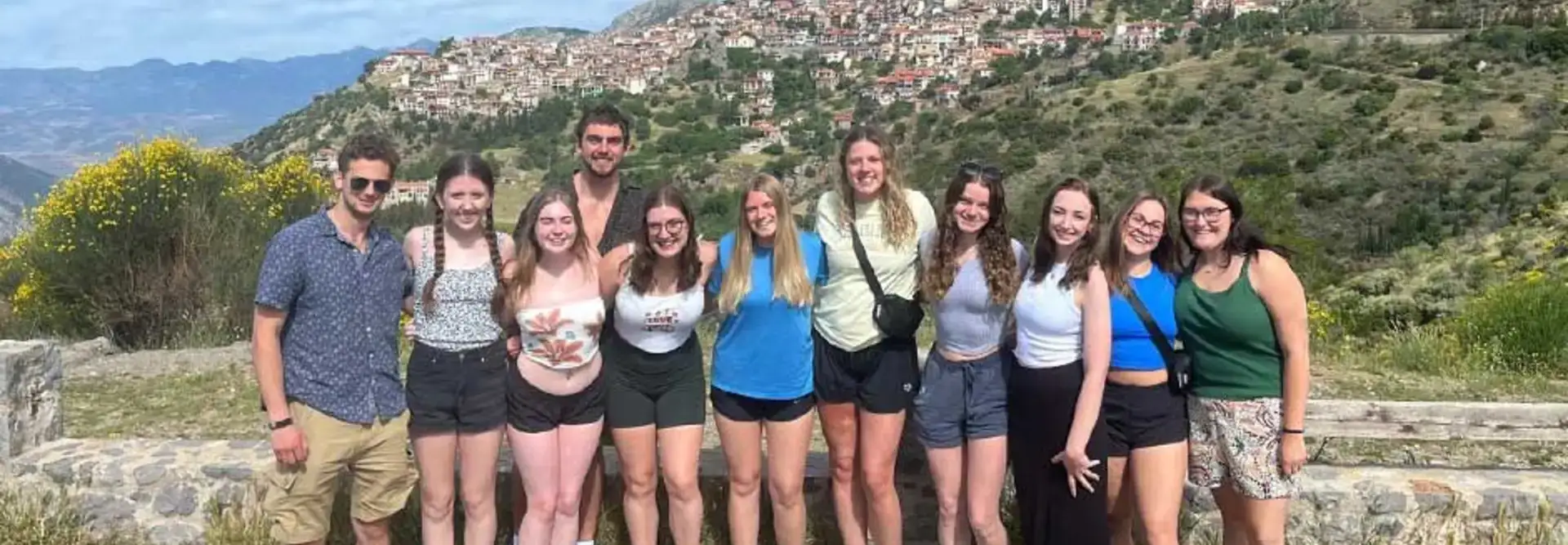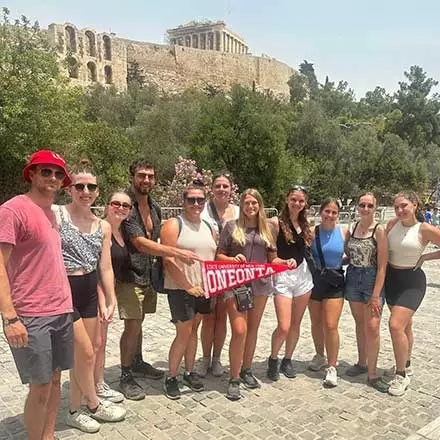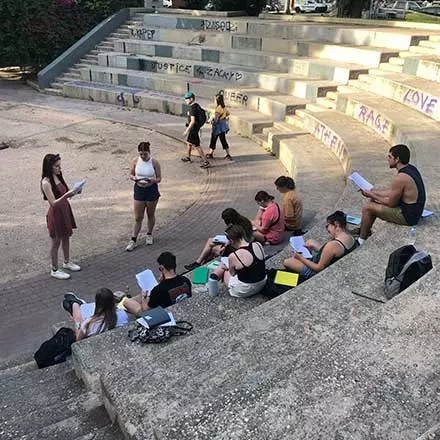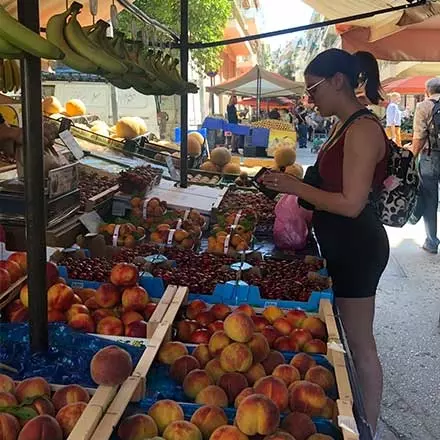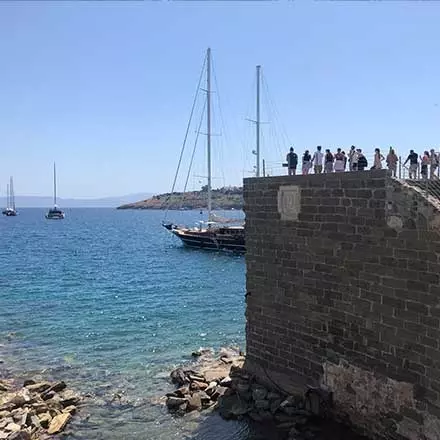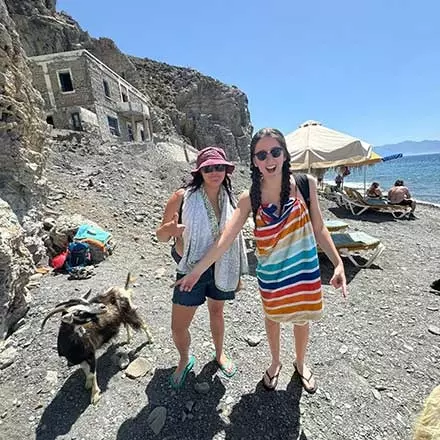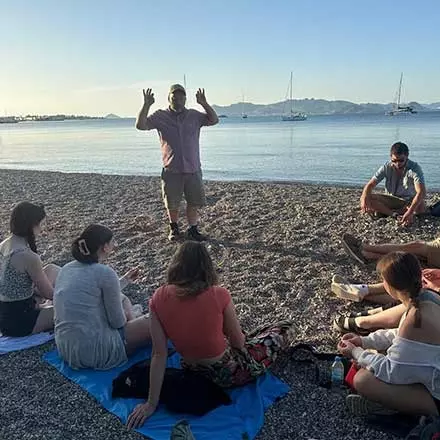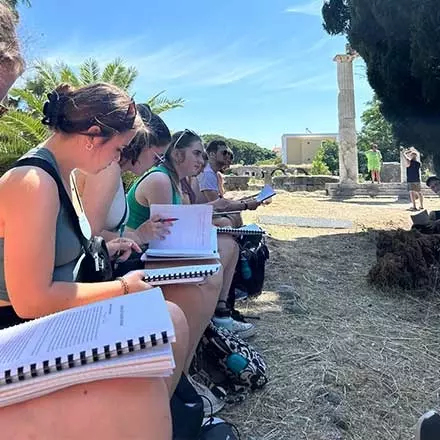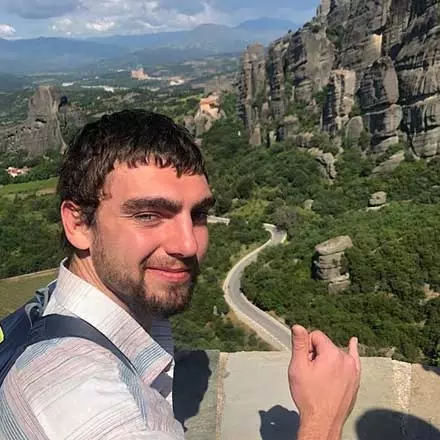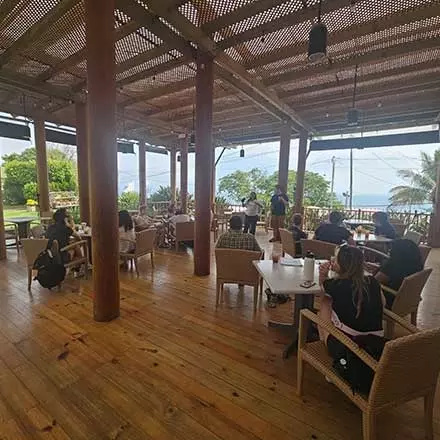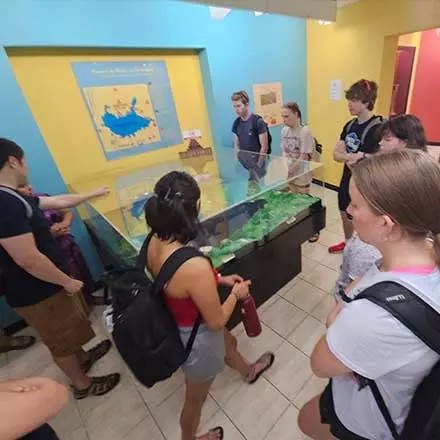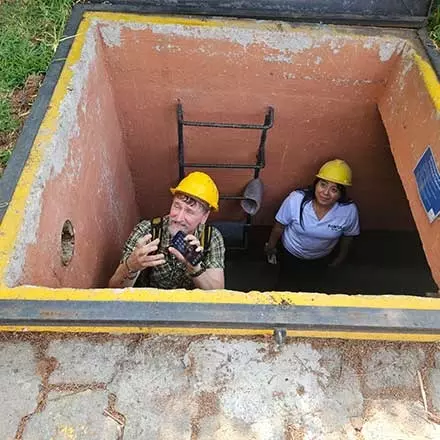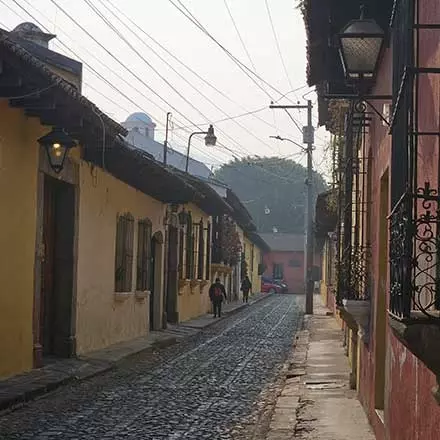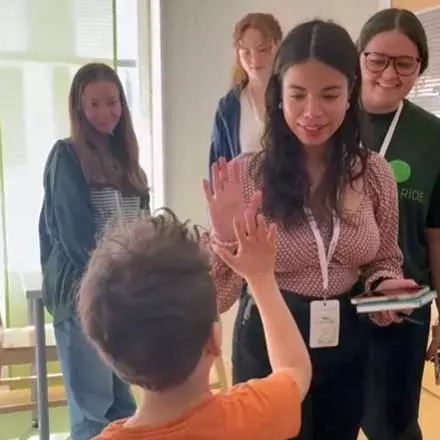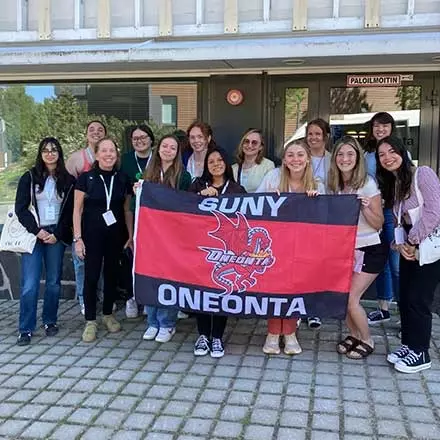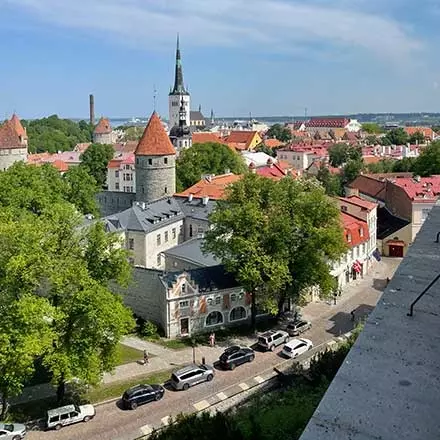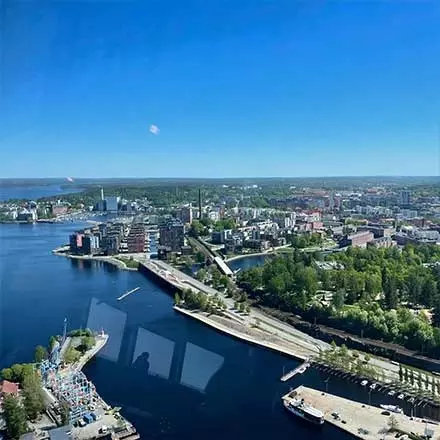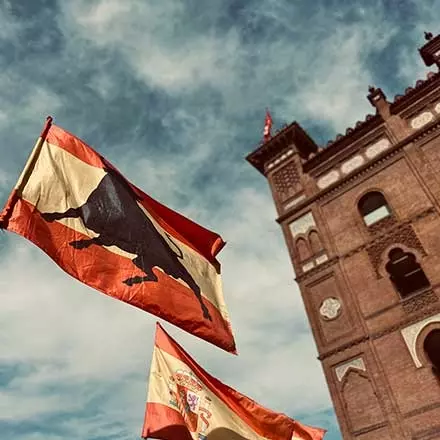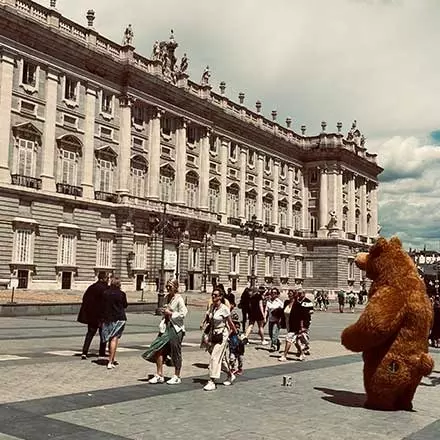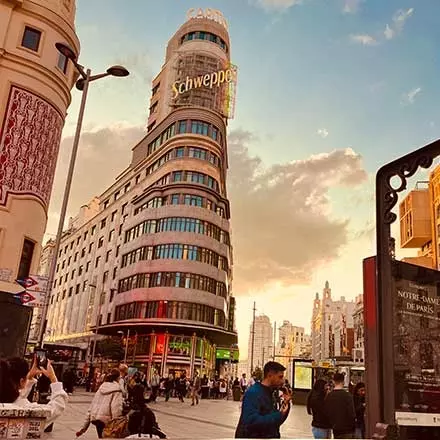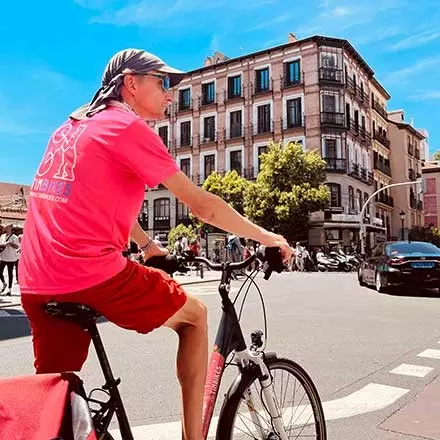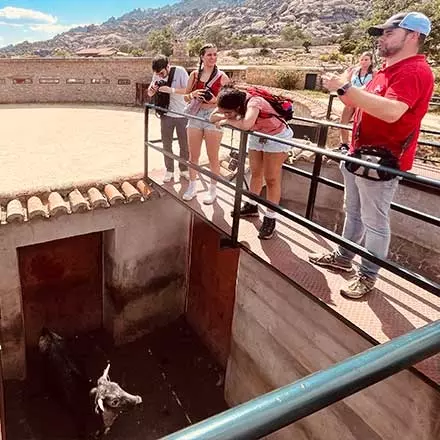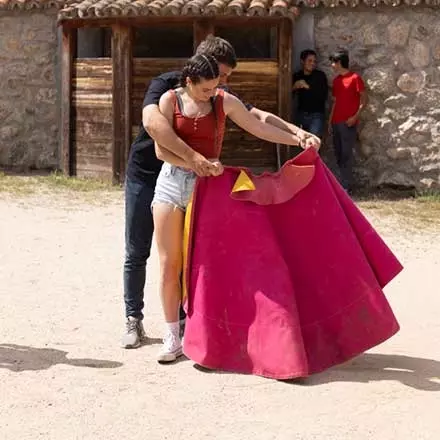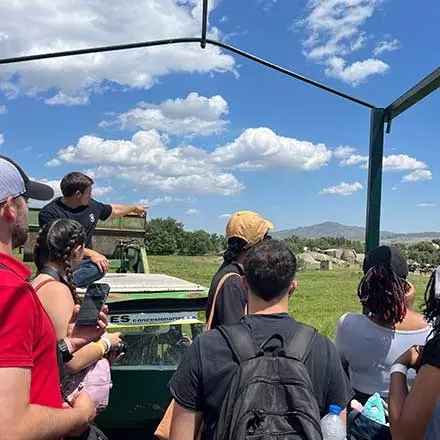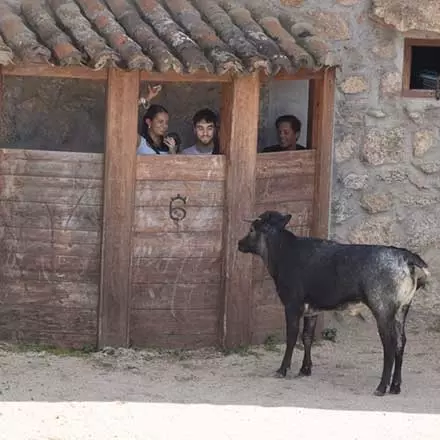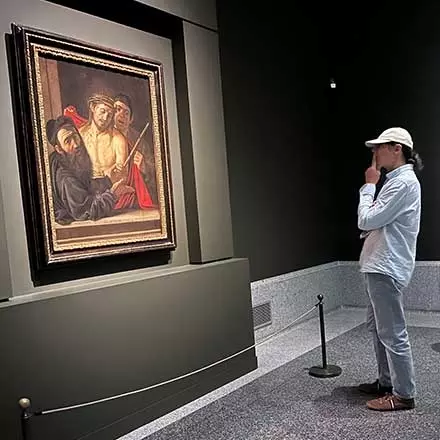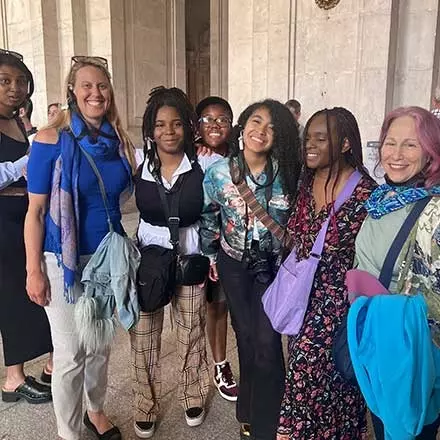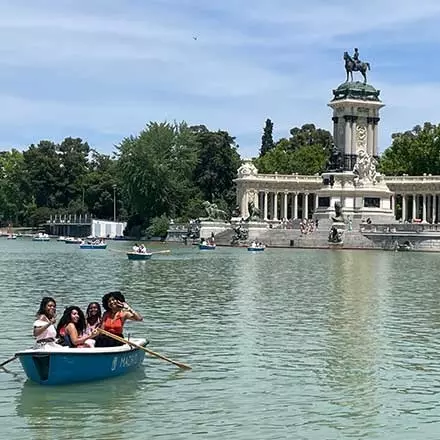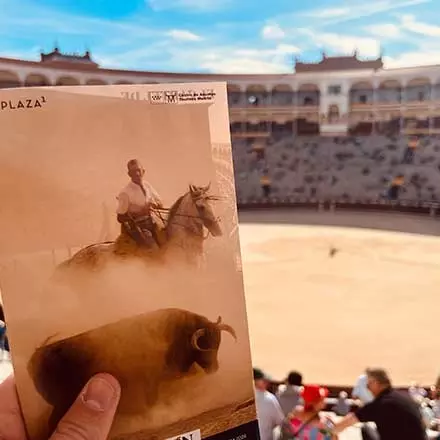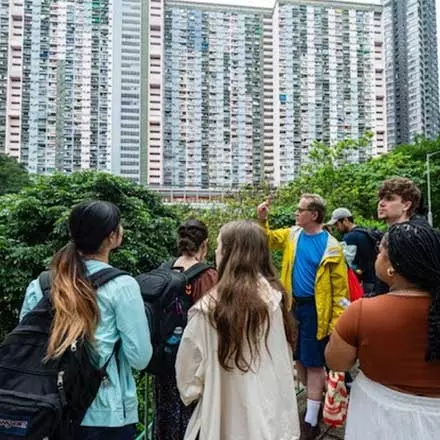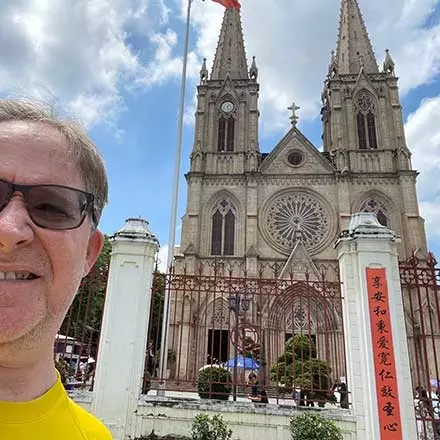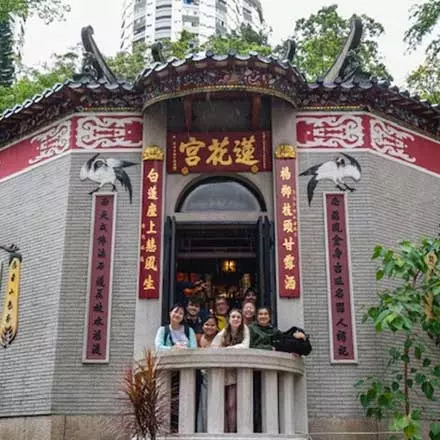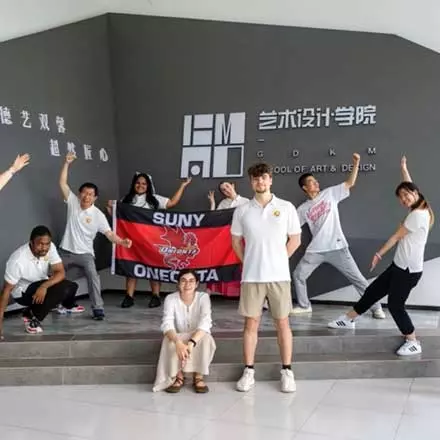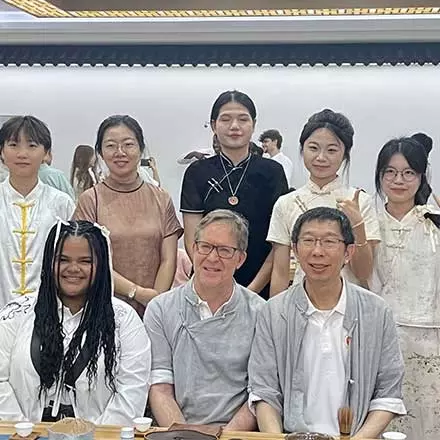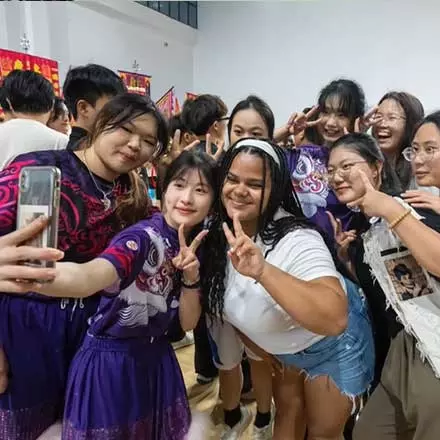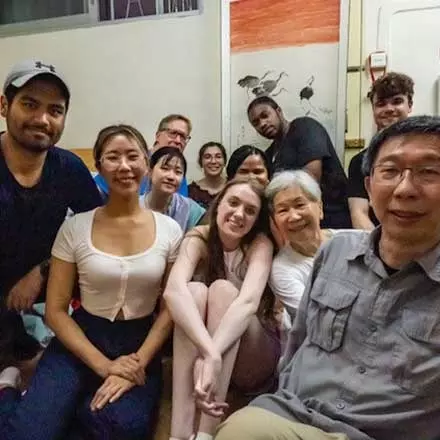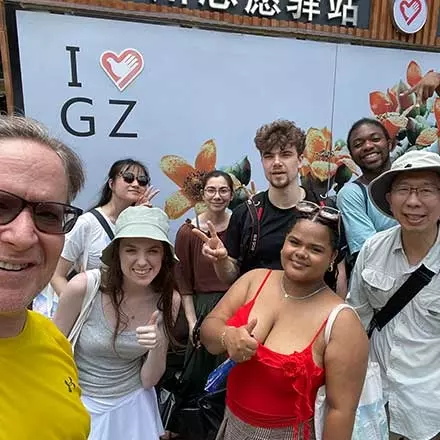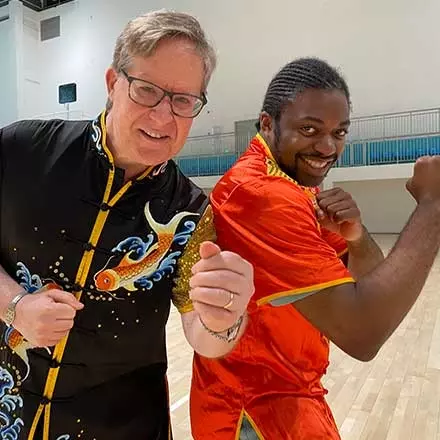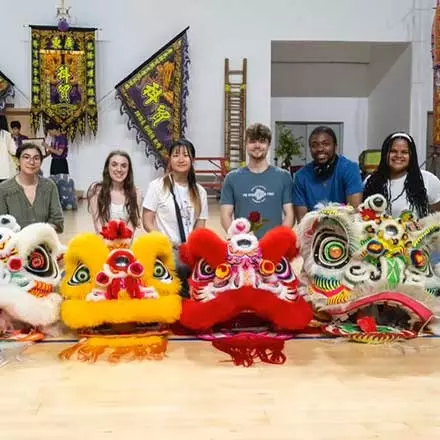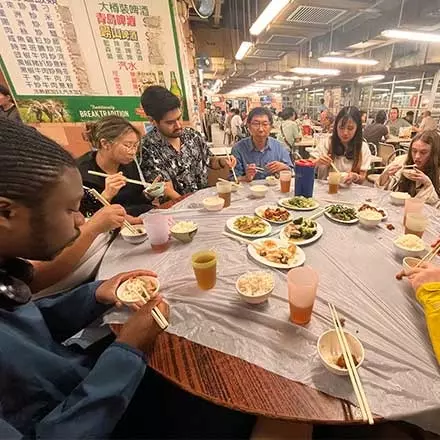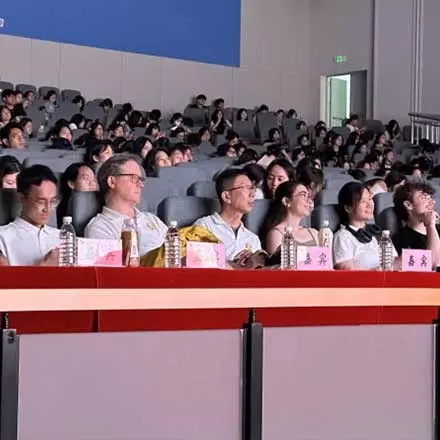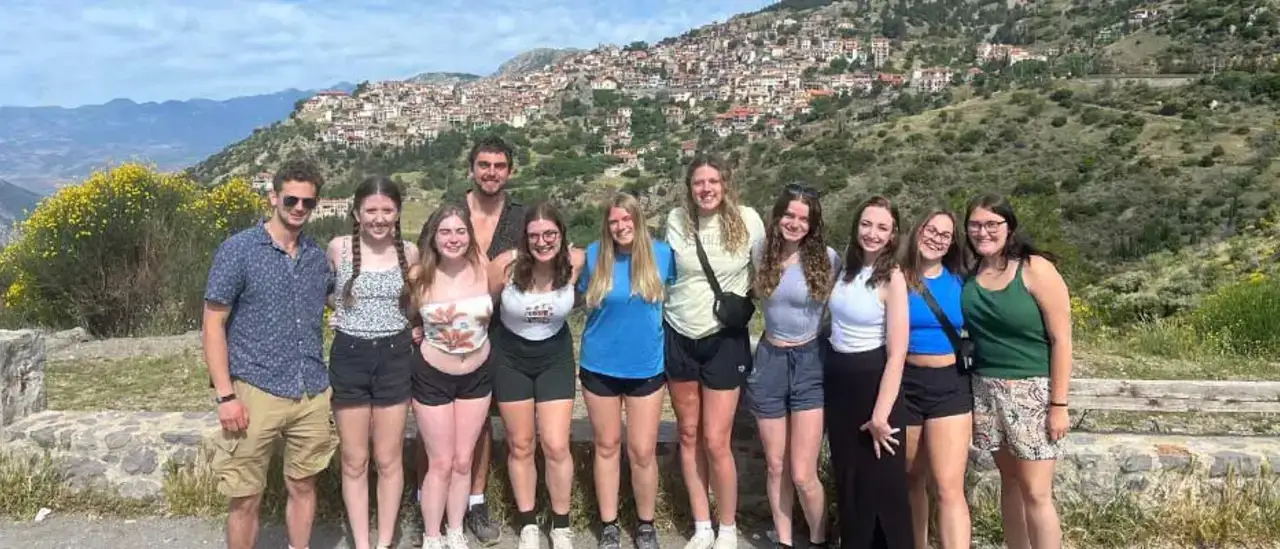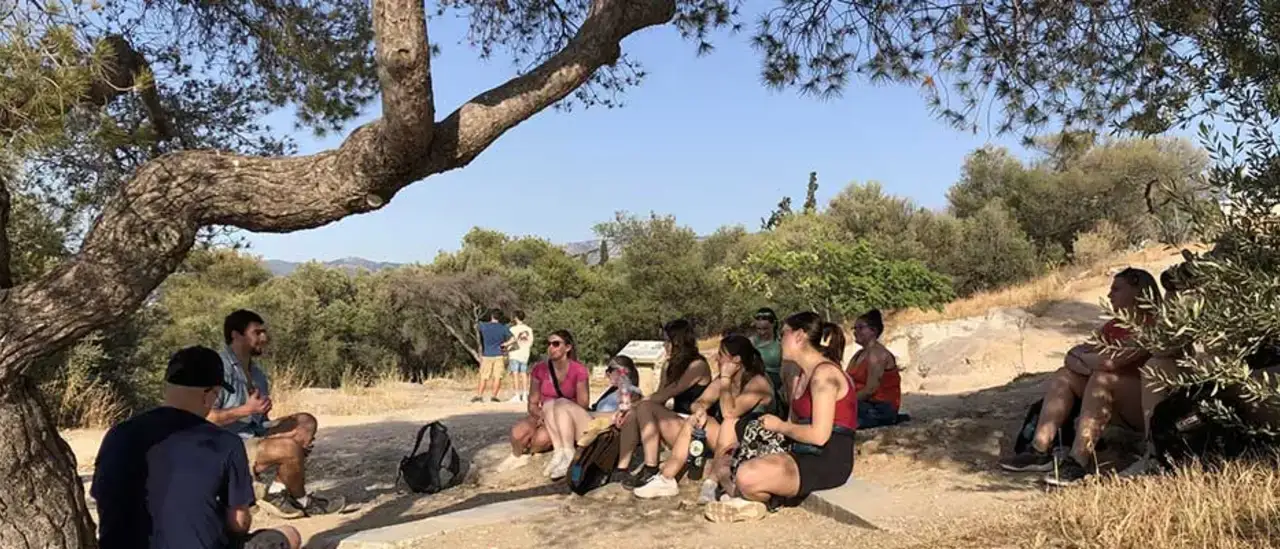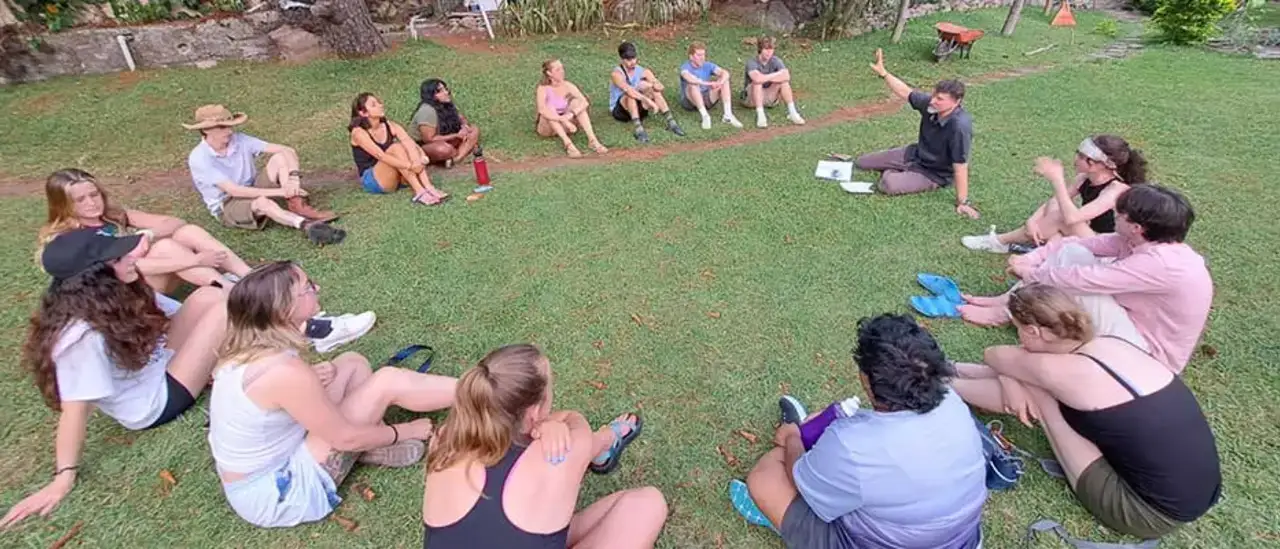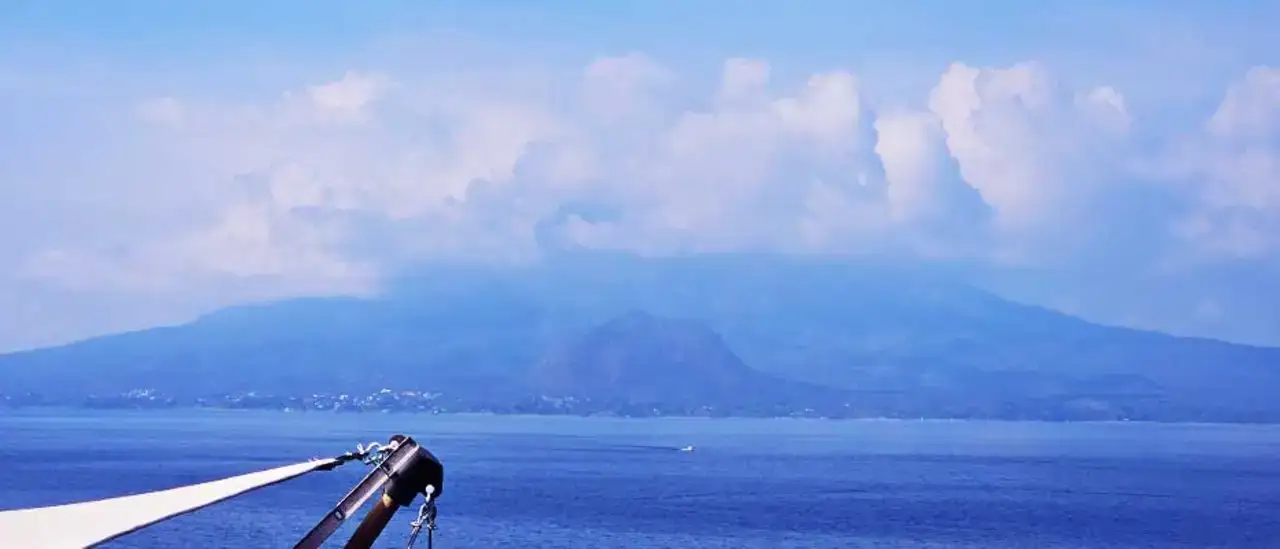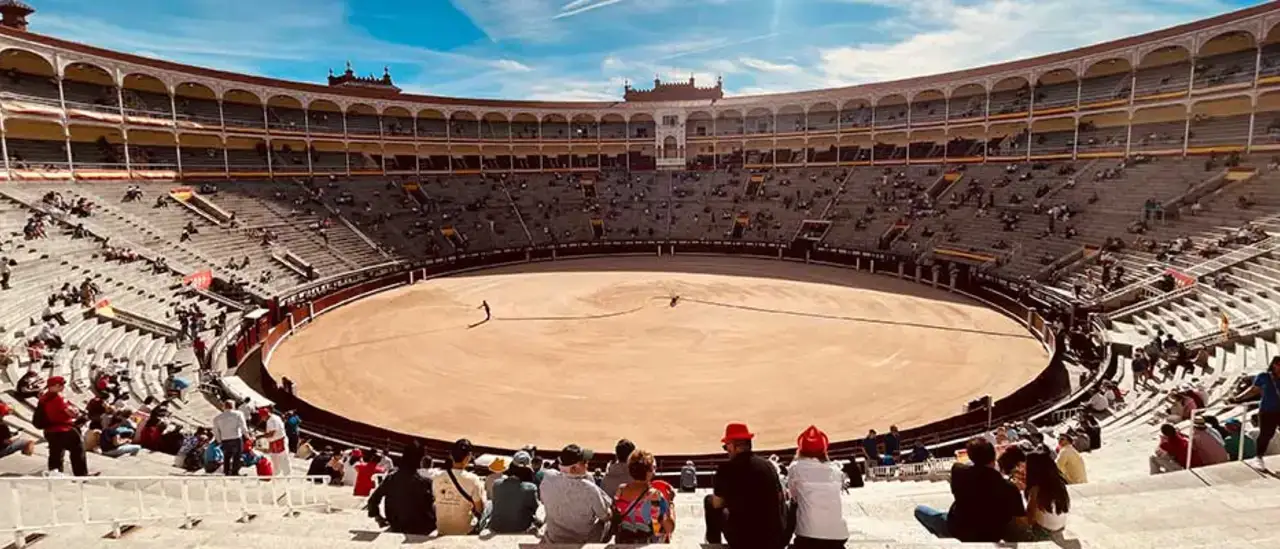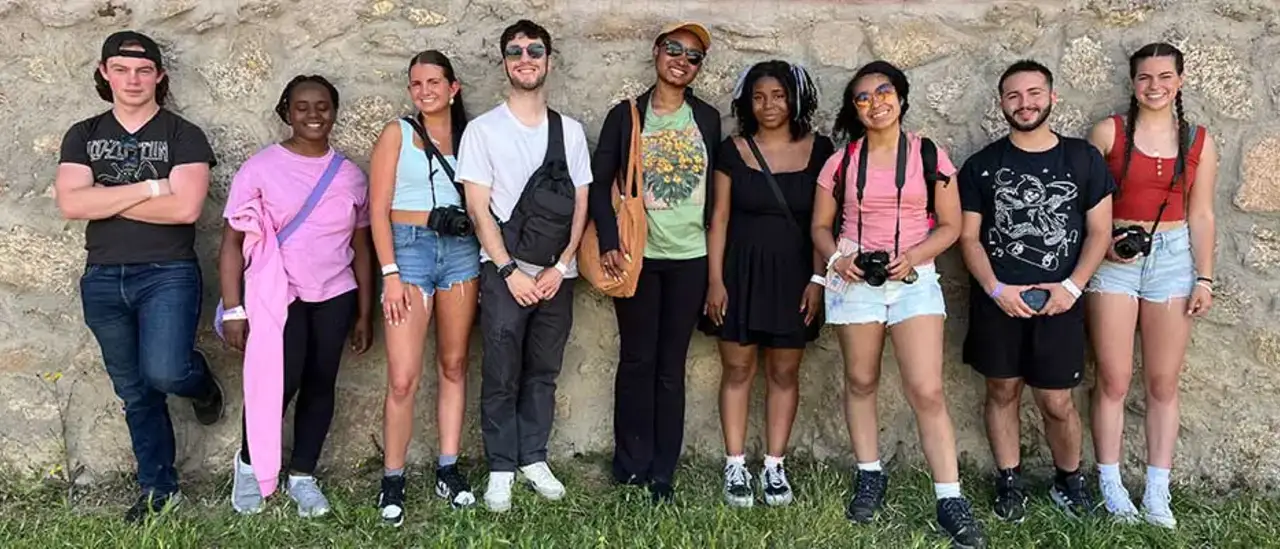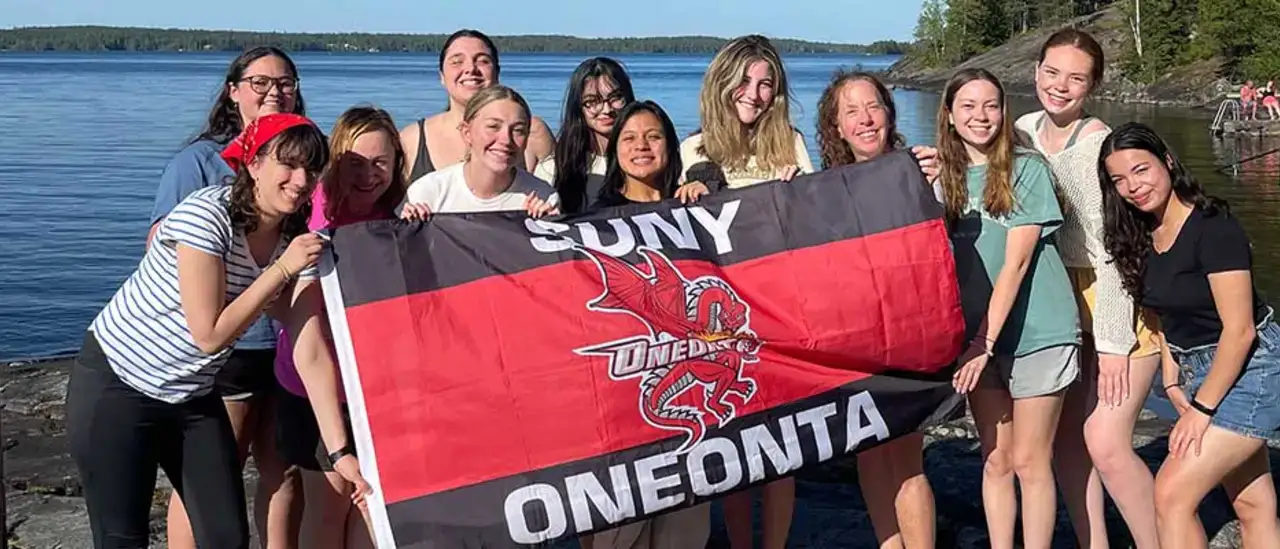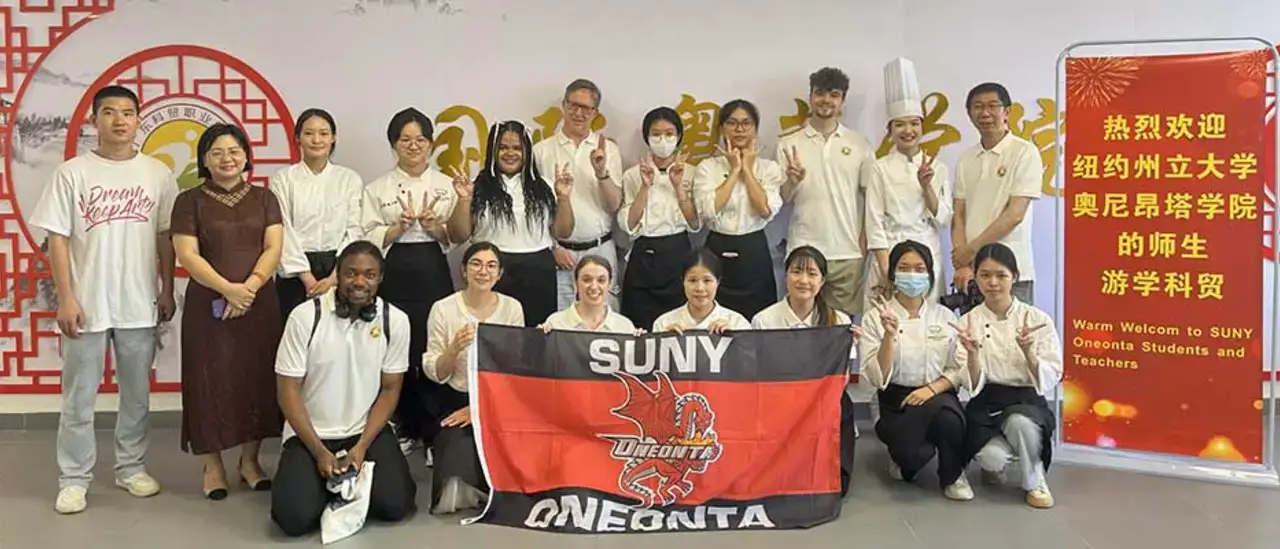It may be summer break, but learning at SUNY Oneonta is certainly not on pause, with more than 50 students having recently returned from five different short-term study abroad opportunities.
Lasting anywhere from 1 to 4 weeks, these faculty-led programs (or FLPs) incorporate coursework, cultural experiences and often service-learning opportunities. The trips give students the opportunity to learn and earn credit in a completely new setting, often covering unique subject matters not regularly taught on campus.
“Faculty-led programs are wonderful because they allow our students a ‘mini study abroad’, if you will,” said Office of Global Education Director Michelle Lopez. “We’re incredibly happy to be able to offer these life-changing opportunities. Faculty-led trips mean invaluable experiential learning for students, something we prioritize at SUNY Oneonta!”
Greece
The longest trip this summer was for the course PHIL 3500: Ancient Philosophical Thought: Rediscovering the Art of Living Well. Eleven Oneonta students enrolled in the class spent close to three weeks exploring Greece and Turkey, from May 23 until June 10.
Led by Dr. Daniel Patrone, the group explored the birthplace of Western philosophy, immersing themselves in the history and culture of the region. From “balancing their humours” in geothermal waters à la Hippocrates to performing Sophocles' “Antigone” in an Athenian amphitheater to continuing philosophical discussions late into the night, under the stars on the beach, this “is what deep learning looks like!” Patrone wrote from Athens.
“The opportunity to study abroad through Oneonta was one of the best decisions I could’ve made for myself,” said Morgan Craven, a sophomore from Hamilton, NY, who is majoring in political science and environmental sustainability. “Being able to learn about things like Plato’s school of philosophy while sitting in the ruins of Plato’s school was the most unreal experience. Being able to see and touch what we’re learning about made it that much more interesting. …The knowledge and experience I took home is something that I will remember forever, and I met some of the best people who became close friends!"
Guatemala
The largest faculty-led program this summer was Dr. Tracy Allen’s trip to Guatemala, which took 15 students to the Central American country for the interdisciplinary course Water and the Environment of Guatemala. This annual class touches on the geography, geology and environmental science of the region and prepares students to find solutions to contemporary water resources issues in the developing world.
From May 22 to June 4, students took water samples and analyzed water quality data from Lake Atitlán and the surrounding watershed in order to share the results with the community. They also toured solid waste and wastewater treatment plants, visited Mayan homes to install water filters, sampled city and school wells, and taught school children about water quality. In their free time, they enjoyed boat rides, toured Mayan ruins and a coffee plantation, hiked volcanos and even visited a butterfly conservatory.
Allen said FLPs are excellent experiential learning opportunities for both students and faculty. They "open students' eyes to cross-cultural understanding and change lives. For students to be successful, they must be globally aware."
“Learning in the field with the topics right in front of you made learning very engaging and exciting,” said Gillian Reiner, a junior Environmental Sustainability major from Newport, NY. “Understanding the ways that the community and the lake are intertwined gave me a deeper understanding of just how important conservation efforts are. It was a great way to learn and be immersed in Guatemalan culture.”
Finland
Across the Atlantic Ocean, Dr. Ann Fradkin-Hayslip and 10 of her students were busy studying Finland’s educational system, consistently ranked the best in the world, for the course Cross Cultural Comparisons of Educational Systems.
From May 19 to May 28, the group visited schools in Finland, from pre-K through high school, observing in classrooms and meeting with administrators, teachers and students. They discovered a completely different educational system, one where teachers “are highly revered and respected, on par with doctors” and have “tremendous autonomy,” Fradkin-Hayslip said. In Finland, standardized testing, homework and school buses do not exist, breaks throughout the day are common, and shoes are not worn inside the school. Instead, students are encouraged to play, walk to school or ride their bike and be independent. In addition to their academic courses, students take cooking and carpentry classes, learning important life skills.
Senior Childhood Education major Myah Hauck from Madison, NY, said the trip allowed her to “learn so much in such a short time," form lasting friendships, and increase feelings of independence and confidence.
“I have loved this opportunity to learn more strategies as a future teacher and form our own opinions on American and Finnish education,” Hauck said. “It's very interesting to compare and contrast the two and find what we like and dislike about each. Overall, I have found this experience more than helpful in continuing to form my ideology and pedagogy as an educator. I will be using what I’ve learned about Finland in my future classroom to better my future students.”
Madrid
About 2,000 miles away in Spain, Assistant Professor of Photography Wesley Bernard and 10 of his students spent from May 20 to May 31 taking photos and touring Madrid for the course Documentary Photography.
With cameras in hand, students used photography to witness and document the rapidly changing Spanish culture regarding cattle and beef production, sustainable food practices, global warming’s effects and cultural celebrations.
Students visited museums and the Royal Palace of Madrid and saw a flamenco show, enjoyed delicious tapas, paella and gelato, visited a ranch, and witnessed firsthand what goes into the tradition of Spanish bullfighting, even getting to attend a live event.
“Everyone had a great time not only getting to see the city, but getting to know one another, and I feel that experiences like this are very important for people our age,” said Antonio De Luca, a senior Digital Arts major from Long Island. “Part of our course was taking portraits of the locals of Madrid and asking about the culture, so upon asking people to do photos for us, we gained a better insight on their lifestyles in Spain and how it compares to America, and it was overall a great learning experience.”
China
From May 23 to June 5, six students in the course Experiencing Cities and Architecture: China explored the Guangzhou and Hong Kong regions with Dr. Matthew Hendley and Dr. HoHon Leung to study the cities and architecture in the context of the history of urbanization and modernization in modern China. Students could choose either a history or sociology focus.
The goal of the trip was to understand and analyze the relationship between the nature and development of cities and the functionalities, meanings and symbolic power of architecture from a cross-disciplinary approach. Key themes included the integration of Guangzhou/Hong Kong into the Greater Bay area (which includes Shenzhen), the impact of tourism and trade on the region, and the balanced development between the built- and natural-environment there.
The group traveled to Kowloon Tsim Sha Tsui tourism shopping district, Wailing Ding Island, Shamian Island, Weiyuan Ancient Fort, Chen Clan Ancestral Hall and Temple of Six Banyan Trees, Liurong Buddhist Temple, and more! They were able to meet with Guangdong University and Huangpu Military Academy students, and even learned how to make dumplings with the Huangpu students.
“This was an amazing trip and experience,” said Langston Lamitie, a senior Criminal Justice major from New Hartford, NY. “I was introduced to a new culture, which was reflected in the food, residences and communication. Hong Kong was my personal favorite part of the trip, as there was much to learn and see! Qingyuan and Guangzhou were equally as impressive, and I was able to make a few friends with the students at GPST. I am sure that I will return to visit Asia in the future, and I hope to visit the friends and acquaintances that I made!”
